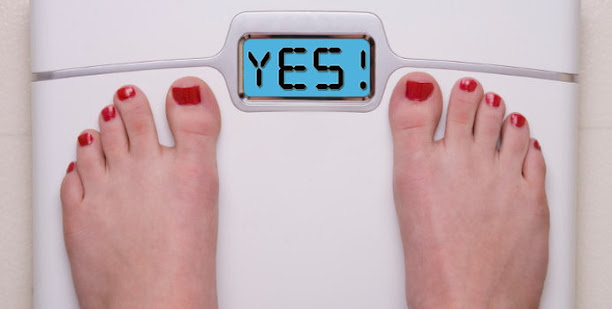What is the ideal weight for my height and age and exercises
What is the ideal weight for my height and age?
Ideal weight varies based on factors like height, age, gender, and body composition. Your doctor can help determine a healthy weight range for you.
How can I lose weight safely and effectively?
- You can lose weight safely and effectively by following a balanced diet, staying active with regular exercise, managing portion sizes, and avoiding crash diets or extreme measures.
What are the health risks associated with being underweight or overweight?
Being underweight or overweight can increase the risk of health problems such as nutrient deficiencies, heart disease, diabetes, bone issues, and mental health issues like depression.
How does body weight affect overall health and well-being?
Maintaining a healthy body weight loss is important for overall health and well-being as it reduces the risk of chronic diseases, improves energy levels, enhances mood, and promotes longevity.
What factors contribute to weight gain or difficulty losing weight?
Factors contributing to weight gain or difficulty losing weight include genetics, diet, physical activity levels, metabolism, hormonal imbalances, stress, sleep patterns, and underlying medical conditions.
Are there specific diets or exercise routines recommended for weight management?
Effective weight management involves a balanced diet rich in fruits, vegetables, lean proteins, and whole grains, combined with regular physical activity such as cardio and strength training exercises.
How can I maintain a healthy weight long-term?
Maintaining a healthy weight long-term involves adopting sustainable lifestyle changes, including healthy eating habits, regular exercise, stress management, and getting enough sleep.
What role does metabolism play in weight regulation?
Metabolism plays a significant role in weight regulation as it determines how many calories your body burns at rest. Factors such as age, gender, muscle mass, and genetics influence metabolism.
Is it possible to gain weight in a healthy way? Yes, it's possible to gain weight in a healthy way by focusing on nutrient-dense foods, increasing calorie intake gradually, and incorporating strength training exercises to build muscle mass.
What are some strategies for overcoming emotional eating or food cravings?
Strategies for overcoming emotional eating or food cravings include identifying triggers, finding alternative coping mechanisms, practicing mindful eating, and seeking support from a therapist or counselor if needed.
How does body composition (muscle vs. fat) impact overall weight and health?
Body composition, specifically the ratio of muscle to fat, influences overall weight and health. A higher muscle mass contributes to a faster metabolism, better physical function, and reduced risk of chronic diseases compared to excess body fat.
What are the benefits of reaching and maintaining a healthy weight?
Benefits of reaching and maintaining a healthy weight include improved overall health, reduced risk of chronic diseases, increased energy levels, better mood, enhanced self-esteem, and improved quality of life.
How does weight fluctuation affect the body and metabolism?
Weight fluctuation can impact the body and metabolism by affecting hormone levels, metabolism, appetite regulation, and energy expenditure, potentially leading to difficulties in weight management over time.
Are there medical conditions that can affect weight or make it difficult to lose weight?
Yes, certain medical conditions such as thyroid disorders, polycystic ovary syndrome (PCOS), diabetes, and hormonal imbalances can affect weight regulation and make it difficult to lose weight.
How can I determine if I'm at a healthy weight for my body type and lifestyle?
You can determine if you're at a healthy weight by using tools like body mass index (BMI), waist circumference measurements, and considering factors such as muscle mass, physical fitness, and overall well-being in consultation with a healthcare professional.
Sun Salutations (Surya Namaskar):
This dynamic sequence of yoga poses helps in warming up the body, increasing flexibility, and burning calories.
Warrior Poses (Virabhadrasana I, II, III):
These standing poses help in strengthening the legs, toning the muscles, and improving balance and concentration.
Chair Pose (Utkatasana):
This pose works on the lower body, specifically targeting the thighs, buttocks, and hips. It also engages the core muscles and helps in building endurance.
Boat Pose (Navasana):
This core-strengthening pose helps in toning the abdominal muscles, improving digestion, and stimulating the metabolism.
Plank Pose:
This is a full-body workout that engages multiple muscle groups, including the core, arms, shoulders, and legs. It helps in building strength, stability, and endurance.
High-Intensity Interval Training (HIIT):
HIIT involves short bursts of intense exercise followed by brief rest periods. It can include exercises like jumping jacks, burpees, squats, lunges, and mountain climbers, helping to burn calories and boost metabolism.
Cardio Workouts:
Activities like running, cycling, swimming, and brisk walking are excellent for cardiovascular health and weight loss. Aim for at least 30 minutes of moderate to vigorous aerobic exercise most days of the week.
Strength Training:
Incorporating resistance exercises using bodyweight, dumbbells, or resistance bands helps in building lean muscle mass, which in turn boosts metabolism and burns more calories even at rest.
Yoga Flow Classes:
Joining yoga flow or vinyasa classes can provide a full-body workout while improving flexibility, balance, and strength. The continuous movement from one pose to another helps in keeping the heart rate elevated and burning calories.
Mindful Movement:
Practicing mindful exercises like tai chi or qigong can help in reducing stress, promoting relaxation, and improving overall well-being, which may indirectly contribute to weight loss by reducing emotional eating and promoting healthier habits.


Comments
Post a Comment